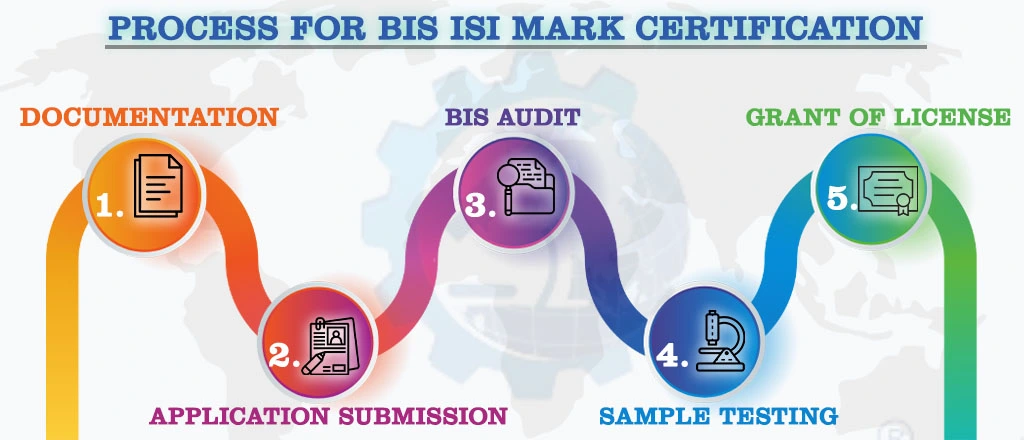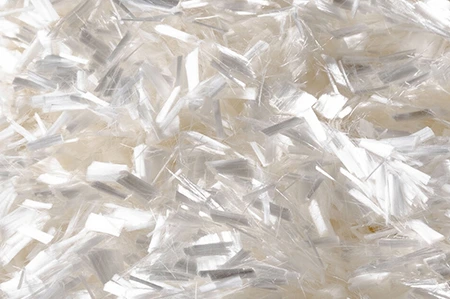BIS CERTIFICATION FOR SYNTHETIC MICRO FIBRES
IS 16481:2022
In this competitive scenario, it isn't easy to survive in the market without a standard quality and certified product. BIS license may also be required to sell products in the Indian market.
To get BIS certification and produce a standard quality product, the manufacturer must ensure that their product must follow the specified Indian standard.
Let's take a closer look at IS 16481: 2022 Synthetic Micro-Fibres for cement-based Matrix use.
IS 16481:2022 covers Synthetic Micro-Fibres. The Bureau of Indian Standards adopted this Indian standard after the textile division council approved the draft finalized by the technical textiles for Build tech sectional committee.
This standard specifies the physical, application, and functional requirements for synthetic microfibers such as polyester, nylon, and polypropylene fibres, etc. for use in cement-based matrices for secondary reinforcement in construction works such as concrete roads and pavements, industrial and commercial floorings, residential and commercial buildings, bridges and elevated structures, water retaining structures and dams, ports and under sea concrete structures, plaster, shortcrete, etc.
This standard primarily addresses the requirements for synthetic fibres used for secondary reinforcement of concrete, such as polyester, polypropylene, and nylon. The synthetic fibres used for secondary reinforcement in concrete must meet the requirements specified in clause 4 of this standard, as well as the physical, application, and functional requirements specified in the standard.
Only virgin synthetic fibres with cut lengths ranging from 6mm to 25mm that are inert to the concrete environment may be used as secondary reinforcement in cement-based matrices; no recycled material is permitted. Fibers must be well dispersed in a cement-based matrix to achieve uniform functional properties.
TESTS
The following test shall be carried out in accordance with the method prescribed.
- Isophthalic acid content
- Resistance of fibres
- Water absorptive capacity
- Specific gravity
- Melting and glass transition temperature
- Viscosity
Packing and Marking:
Packing and marking shall be done in accordance with IS 16481:2022. The bag or paper pouches shall be marked with information as specified in the standard.
Conforming to the requirements of this standard, the product(s) may be certified under the provisions of the Bureau of Indian Standards Act, 2016 and the Rules and Regulations framed thereunder, and the products may be marked with the Standard Mark (ISI Mark). The Manufacturer must obtain a BIS license from the Bureau of Indian Standards to use a standard mark (ISI Mark). The BIS grants a license based on a successful assessment of manufacturing infrastructure, quality control, testing capabilities, and production process.
Latest QCO for Synthetic Micro Fibres IS 16481:2022

NOTE:
For Detailed Information about the Procedure for BIS ISI Certification
Visit :
• ISI Mark Certification for Domestic Manufacturers• ISI Mark Certification for Foreign Manufacturers
Conclusion:
If a product falls under the scope of the BIS Conformity Assessment Scheme, All the manufacturers, importers, and foreign entities must obtain BIS ISI Certification. The Bureau may cancel the License if the product fails to meet certification requirements.
Aleph INDIA has been serving the industry as a single-window operator for all product regulatory compliance. We can assist importers or manufacturers in meeting all criteria for importing or selling a product in the Indian market.
International Audits & Participation
Testimonials
BIS REGISTRATION FOR ELECTRONIC & IT PRODUCT
In the era of globalization, world trade is growing rapidly and henceforth, Manufacturing and Import/Export businesses are also growing drastically...View More
BIS CERTIFICATE FOR FOREIGN MANUFACTURER
The Economy of India-the fastest developing economy on the globe with the capabilities that help it matches up with the biggest international...View More
PRODUCT CERTIFICATION SCHEME (ISI MARK) FOR DOMESTIC MANUFACTURERS
Anything a person buys from food to cars, clothes to electronics, branded to unnamed products there is always a question that wanders in one’s...View More
WIRELESS PLANNING AND COORDINATION (WPC)
WPC: Wireless means communication done from one point to another point without the wires and cables. Electromagnetic waves carry the ...View More
BUREAU OF ENERGY EFFICIENCY (BEE) CERTIFICATE
BEE CERTIFICATE: Energy is the future, and its conservation is the way of the bright future. Everyone claims the environment is important...View More
E-WASTE MANAGEMENT
E-waste is one of the world's fastest-growing trash streams. We currently manufacture almost 50 million tones of it each year...View More
Request a call back.
Would you like to speak to one of our Senior Technical advisers over the phone? Just submit your details and we’ll be in touch shortly. You can also email us if you would prefer.
BIS REGISTRATION FOR ELECTRONIC & IT PRODUCT
In the era of globalization, world trade is growing rapidly and henceforth, Manufacturing and Import/Export businesses are also growing drastically...View More
BIS CERTIFICATE FOR FOREIGN MANUFACTURER
The Economy of India-the fastest developing economy on the globe with the capabilities that help it matches up with the biggest international...View More
PRODUCT CERTIFICATION SCHEME (ISI MARK) FOR DOMESTIC MANUFACTURERS
Anything a person buys from food to cars, clothes to electronics, branded to unnamed products there is always a question that wanders in one’s...View More
WIRELESS PLANNING AND COORDINATION (WPC)
WPC: Wireless means communication done from one point to another point without the wires and cables. Electromagnetic waves carry the ...View More
BUREAU OF ENERGY EFFICIENCY (BEE) CERTIFICATE
BEE CERTIFICATE: Energy is the future, and its conservation is the way of the bright future. Everyone claims the environment is important...View More
E-WASTE MANAGEMENT
E-waste is one of the world's fastest-growing trash streams. We currently manufacture almost 50 million tones of it each year...View More
View All Services
Request a call back.
Would you like to speak to one of our Senior Technical advisers over the phone? Just submit your details and we’ll be in touch shortly. You can also email us if you would prefer.






























